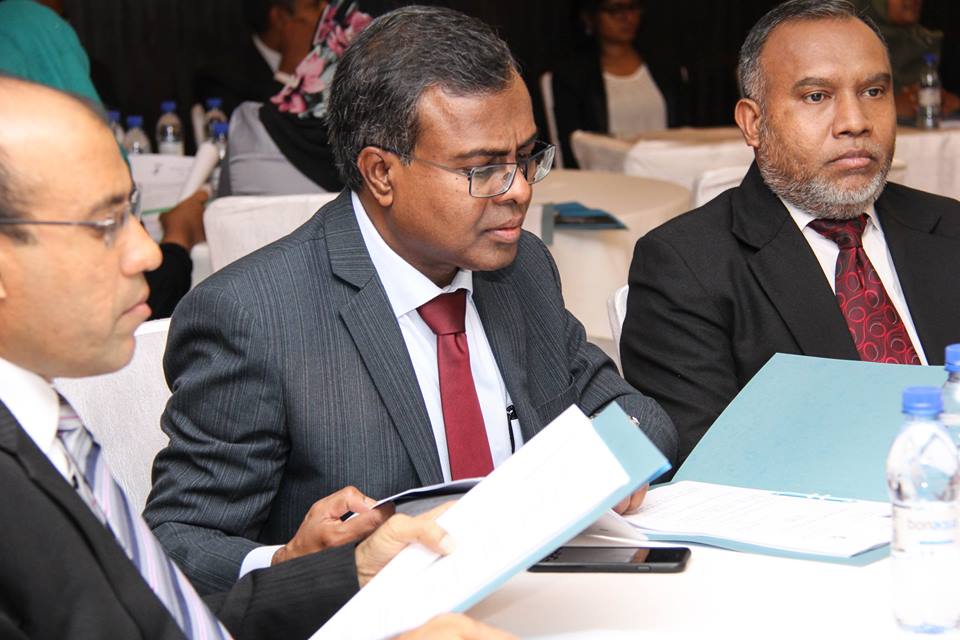Supreme Court to rule on constitutionality of disputed laws
The Supreme Court concluded hearings Tuesday to decide whether it will hear the opposition’s challenge to the constitutionality of two controversial bills ratified last week.

20 Mar 2018, 09:00
The Supreme Court has concluded hearings on the constitutionality of two controversial bills ratified last week.
The opposition asked the court to nullify an anti-defection law and amendments brought to the Judges Act on the grounds that parliament voted without the constitutional quorum needed to pass laws.
More than half the 85-member house must be present for voting on “any matter requiring compliance by citizens” but only 39 lawmakers attended the March 13 sitting.
President Abdulla Yameen, however, ratified both bills the next day. The anti-defection bill penalises floor crossing by stripping lawmakers of their seats whilst the Judges Act was revised to trigger removal from office if a judge is convicted of a criminal offence.
Become a member
Get full access to our archive and personalise your experience.
Already a member?
Discussion
No comments yet. Be the first to share your thoughts!
No comments yet. Be the first to join the conversation!
Join the Conversation
Sign in to share your thoughts under an alias and take part in the discussion. Independent journalism thrives on open, respectful debate — your voice matters.




